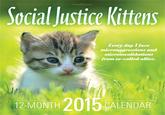Microaggression
Part of a series on Social Justice Blogging. [View Related Entries]
[View Related Sub-entries]
About
Microaggression is a neologism used to describe statements or social behaviors that unintentionally reflect a sentiment of discrimination toward a minority group. Online, the concept is hotly debated in various discussions of social injustices, particularly in the context of racism and sexism, with some recognizing it as an emerging form of discrimination evolved from overt expressions of bigotry, while others criticize that the term represents a culture of victimhood driven by political correctness.
Origin
In 1970, the term "microaggression" was coined by Harvard University professor Chester M. Pierce in reference to dismissive statements and insults directed toward African Americans. In 1973, the term was expanded by MIT economist Mary Rowe to include statements that could be viewed as insulting toward women. "Microaggression" eventually became a label for casual remarks that could be viewed as disparaging to any socially disadvantaged group.
Spread
On October 4th, 2010, the Johnwileysons YouTube channel uploaded a video titled "Microaggression in Everyday Life," in which author Derald Wing Sue explains microaggression theory (shown below).
On March 22nd, 2011, the Microaggressions Project[1] blog was launched, which aims to "provide a visual representation of the everyday of 'microaggressions'." On December 9th, 2013, BuzzFeed[2] published a listicle titled "21 Racial Maicroaggressions You Hear On a Daily Basis," which contained photographs of women and ethnic minorities holding signs containing examples of microaggressions (shown below).



On March 1st, 2014, Harvard University sophomore student Kimiko Matsuda-Lawrence launched the Tumblr blog I Too Am Harvard with dozens of photographs of African American students holding whiteboard signs with racially insensitive comments that have been said to them because of their race. According to Matsuda-Lawrence, the campaign was intended to highlight the faces and voices of black students at the university that often go unnoticed due to widespread ethnic stereotypes. Throughout March 2014, the Tumblr blog inspired a series of spin-off campaigns at a number of other Ivy League and prestigious schools across the United States and overseas, including University of Oxford, University of Cambridge, Yale University and University of Pennsylvania, among others.



On February 5th, 2015, the SheKnows YouTube channel uploaded a video featuring young women quoting examples of microaggressions (shown below). Within seven months, the video garnered more than 200,000 views and 300 comments.
In May, the University of Wisconsin[4] released a list containing "Examples of Racial Microaggressions," which became a subject of controversy for it's inclusion of questions and statements like "where are you from?", "America is a melting pot" and "I believe the most qualified person should get the job" (shown below).

On June 10th, 2015, the higher education news site The College Fix[10] reported that professors at the University of California had been given examples of microaggressions during faculty training sessions, including the statements "American is the land of opportunity" and "There is only one race, the human race." On July 22nd, the MTV News YouTube channel uploaded a video titled "If Microaggressions Happened to White People," featuring skits in which white people are confronted with discriminatory remarks by ethnic minorities (shown below).
Criticisms
On September 11th, 2014, YouTuber TruthRevoltOriginals uploaded a video mocking microaggressions (shown below, left). On July 16th, 2015, YouTuber StevenCrowder uploaded a 1960's education video parody titled "Microaggression: A Beginner's #SJW Guide" (shown below, right).
On August 10th, The Atlantic[6] published an article written by social psychologist Jonathan Haidt and the Foundation for Individual Rights in Education president Greg Lukianoff titled "The Coddling of the American Mind," which cited higher education's embrace of "emotional reasoning" for the rise in focus on microaggressions and trigger warnings. Additionally, the article warned against shielding students from ideas that may cause emotional discomfort.
"Rather than trying to protect students from words and ideas that they will inevitably encounter, colleges should do all they can to equip students to thrive in a world full of words and ideas that they cannot control."
On September 7th, 2015, Haidt published an article on his blog Righteous Mind[9] titled "Where microaggressions really come from: A sociological account," which cited a 2014 sociology paper in arguing that "a new moral culture of victimhood" was responsible for the rise in concern about microaggressions, and warned that it "creates a society of constant and intense moral conflict as people compete for status as victims or as defenders of victims." On September 9th, The Atlantic[8] published a round-up of reader emails responding to "The Coddling of the American Mind."
Search Interest
External References
[1] Microaggressions.com – power privilege and everyday life
[2] BuzzFeed – 21 Racial Microaggressions You Hear On A Daily Basis
[3] Wikipedia – Tocqueville effect
[4] UWSP.edu – Examples of Racial Microaggressions
[5] Reddit – Newest Threat on College Campuses
[6] The Atlantic – The Coddling of the American Mind
[7] Academia.edu – Microaggression and Moral Cultures
[8] The Atlantic – Your Final Thoughts on The Coddling of the American Mind
[9] Righteous Mind – Where microaggressions really come from
[10] The College Fix – California professors instructed not to say
















Top Comments
Paulie DeMafia Mk2
Sep 15, 2015 at 03:24PM EDT
Wisehowl
Sep 15, 2015 at 03:15PM EDT